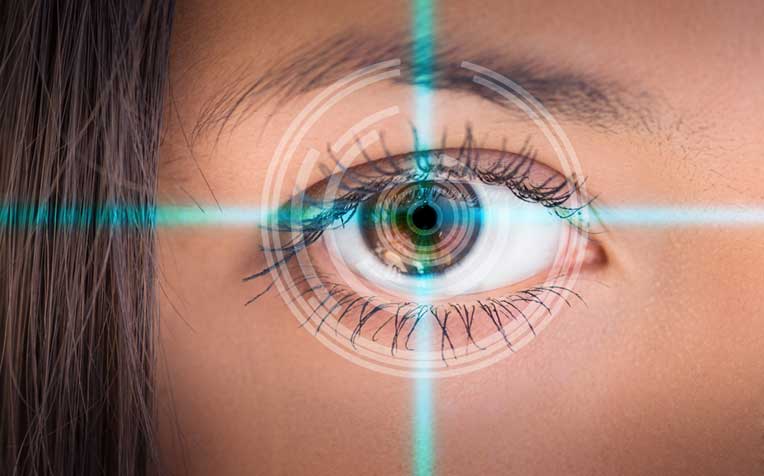1. LASIK suitability depends on age, vision stability, prescription strength, and overall eye and health conditions.
2. Pregnant women, those with autoimmune diseases, or unstable vision should wait or consider alternatives.
3. About 10% of candidates are unsuitable, but alternatives like PRK or implantable contact lenses exist.

LASIK surgery can help treat near-sightedness (myopia), far-sightedness (hyperopia) and astigmatism.
For people with near-sightedness (myopia), far-sightedness (hyperopia) or astigmatism, LASIK surgery could be the key to a life free of cumbersome spectacles and contact lenses.
But not everybody is a suitable candidate for this type of laser eye surgery.
Considering LASIK? Watch May's LASIK journey in the video below!
Here are primary questions a LASIK surgeon is likely to ask you during a consultation.
10 FAQs to determine LASIK suitability
1. What is your age?
If you're under 21
The LASIK surgeon will ask you to wait, to make sure your vision has stabilised.
If you're in your early 40s
You need to be aware that you might still need reading glasses later on.
If you're in your 60s
You will need to be assessed for pre-existing cataracts.
If you have them, cataract surgery might actually solve your vision problem, in addition to correcting any myopia, hyperopia, astigmatism or presbyopia that you might have.
2. How stable is your vision prior to LASIK?
No matter what your age is, it's important for your eyesight to have stabilised for at least a year before you have laser surgery.
3. What is your current eye prescription?
In terms of refraction (i.e. spectacle degree), the main limitation to LASIK is the patient's cornea thickness. This means that even patients who have high myopia or astigmatism can undergo LASIK as long as their cornea is sufficiently thick.
However, it is generally accepted that the results for LASIK in patients with very high refractive error, i.e. myopia of more than 1,000 degrees, hyperopia of more than 400 degrees and astigmatism of more than 400 degrees, are less predictable and less satisfactory, advises the Refractive Surgery Department from Singapore National Eye Centre (SNEC), a member of the SingHealth group.
4. Do you have any eye disease?
There are quite a few eye conditions that need to be screened for, before LASIK surgery. Your doctor will check if you suffer, among other things, from:
Ocular herpes
Keratoconus (a progressive thinning of the cornea)
5. Do you have any medical condition?
Autoimmune diseases, such as:
Are generally considered a contraindication for LASIK, as they might prompt an unexpected response to the laser surgery
Other conditions such as Type 2 diabetes mellitus
Do not necessarily mean the surgeon will turn you away
However, they need to be well controlled, to ensure a favourable healing situation
Similarly, some drugs, like accutane or steroids
May compromise post-op recovery
Tell your doctor about any and all medications you're taking
6. Are you pregnant or nursing?
Pregnant and nursing women undergo hormonal changes which can cause fluctuations in vision. It is advisable that they wait at least six months after pregnancy or breastfeeding, whichever is later, before undergoing LASIK.
7.What is the size of your pupils under dim lights?
Having very large pupils can increase your risk of night-time visual disturbances, such as starbursts or halos after LASIK surgery. The decision to operate is made on a case-by-case basis.
8. What is your current or intended line of work?
Most jobs do not prohibit refractive surgeries or LASIK.
However, the Singapore Air Force (SAF) does not take in pilots, naval divers, submariners or some commandos who have undergone LASIK
Other types of refractive surgeries like PRK or EPILASIK are allowed
It is best that you check with the SAF about their requirements before undergoing surgery.
According to their job ad for cadet pilots, SIA will not reject candidates who have undergone LASIK, but requires that their pre-surgical visual acuity meet the following criteria:
Myopia of not more than 500 degrees
Astigmatism of not more than 125 degrees
9. What are your favourite sports and hobbies?
If you regularly practise contact sports, martial arts or other activities which can put you at high risk of eye injury, you may not be suitable for LASIK surgery.
10. Do you understand the risks of laser surgery and have realistic expectations?
As with any surgery, there are a number of risks involved. For instance, you could develop permanent dry eyes after LASIK. This is especially true if you're of Asian descent
Also, your vision might not be perfect after the first laser surgery. You might require a second operation to achieve optimal results
Your surgeon will need to ascertain that you understand and accept these risks
"Overall, about 10 per cent of people who consult for LASIK are turned away because they're unsuitable candidates", shares the Refractive Surgery Department.
Should that be the case for you, know that the situation might be temporary and that often times, alternatives can be considered, such as PRK (photorefractive keratectomy), implantable contact lenses or EPILASIK (epikeratome laser-assisted keratomileusis).
Ref. H24 (ed)
More articles on LASIK:

















 Get it on Google Play
Get it on Google Play